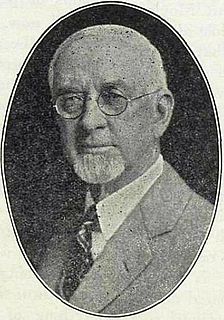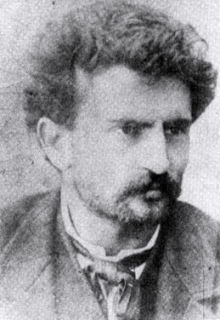A Quote by Johann Most
Is anarchism desirable? Well, who does not seek freedom? What man, unless willing to declare himself in bondage, would care to call any control agreeable? Think about it!
Related Quotes
Every one is struggling for freedom-from the atom to the star. The ignorant man is satisfied if he can get freedom within a certain limit-if he can get rid of the bondage of hunger or of being thirsty. But that sage feels that there is a stronger bondage which has to be thrown off. He would not consider the freedom of the Red Indian as freedom at all.
Unless a man has pity he is not truly a man. If a man has not wept at the worlds pain he is only half a man, and there will always be pain in the world, knowing this does not mean that a man shall dispair. A good man will seek to take pain out of things. A foolish man will not even notice it, except in himself, and the poor unfortunate evil man will drive pain deeper into things and spread it about wherever he goes.
There is no excellence anywhere without labor. We would think a man foolish indeed who would say, "I am willing that my business should prosper, or that my farm should yield plentifully, but I'll not stir a peg." But he is no more foolish than the man who says, "I am willing that God should bless me abundantly, but I shall not do anything toward that end myself." We must consistently rely upon the help of the Lord, but we will not make any progress or meet with any success unless we put forth an earnest effort.
The emotions of the ignorant man are continuously kept at a pitch by the most blood-curdling stories about Anarchism. Not a thing too outrageous to be employed against this philosophy and its exponents. Therefore Anarchism represents to the unthinking what the proverbial bad man does to the child,-a black monster bent on swallowing everything; in short, destruction and violence.
We will freedom for freedom’s sake, in and through particular circumstances. And in thus willing freedom, we discover that it depends entirely upon the freedom of others and that the freedom of others depends upon our own. Obviously, freedom as the definition of a man does not depend upon others, but as soon as there is a commitment, I am obliged to will the liberty of others at the same time as my own. I cannot make liberty my aim unless I make that of others equally my aim.
Anarchism is the abolition of exploitation and oppression of man by man, that is, the abolition of private property and government; Anarchism is the destruction of misery, of superstitions, of hatred. Therefore, every blow given to the institutions of private property and to the government, every exaltation of the conscience of man, every disruption of the present conditions, every lie unmasked, every part of human activity taken away from the control of the authorities, every augmentation of the spirit of solidarity and initiative, is a step towards Anarchism.
But does Man have any 'right' to spread through the universe? Man is what he is, a wild animal with the will to survive, and (so far) the ability, against all competition. Unless one accepts that, anything one says about morals, war, politics, you name it, is nonsense. Correct morals arise from knowing what man is, not what do-gooders and well-meaning old Aunt Nellies would like him to be. The Universe will let us know - later - whether or not Man has any "right" to expand through it.
Westerns. A period gone by, the pioneer, the loner operating by himself, without benefit of society. It usually has something to do with some sort of vengeance; he takes care of the vengeance himself, doesn't call the police. Like Robin Hood. It's the last masculine frontier. Romantic myth. I guess, though it's hard to think about anything romantic today. In a Western you can think, Jesus, there was a time when man was alone, on horseback, out there where man hasn't spoiled the land yet.
Old-fashioned determinism was what we may call hard determinism. It did not shrink from such words as fatality, bondage of the will, necessitation, and the like. Nowadays, we have a soft determinism which abhors harsh words, and, repudiating fatality, necessity, and even predetermination, says that its real name is freedom; for freedom is only necessity understood, and bondage to the highest is identical with true freedom.
If you can control a man's thinking you do not have to worry about his action. When you determine what a man shall think you do not have to concern yourself about what he will do. If you make a man feel that he is inferior, you do not have to compel him to accept an inferior status, for he will seek it himself. If you make a man think that he is justly an outcast, you do not have to order him to the back door. He will go without being told; and if there is no back door, his very nature will demand one.
In the absence of government each man learns to think, to act for himself, without counting on the support of an outside force which, however vigilant one supposes it to be, can never answer all social needs. Man, thus accustomed to seek his well-being only through his own efforts, raises himself in his own opinion as he does in the opinion of others; his soul becomes larger and stronger at the same time.











































